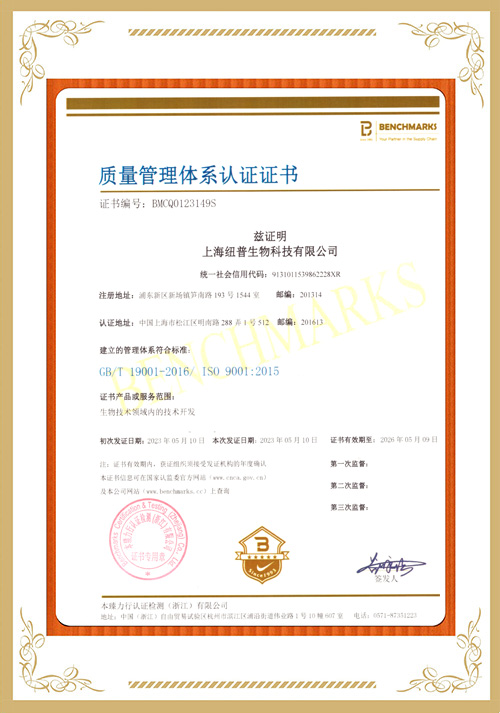- 抗体类型:单克隆
- 抗体来源:兔
- 抗体应用:ELISA, IHC-P
- 特异性:Human Granzyme B / GZMB
Has cross-reactivity in ELISA with Human Granzyme H
产品详情
-
产品名称
Anti-Granzyme B/GZMB antibody
-
抗体类型
单克隆
-
抗体来源
兔
-
抗体亚型
兔IgG
-
抗体描述
Rabbit monoclonal to Granzyme B/GZMB
-
抗体应用
ELISA, IHC-P
-
应用推荐
ELISA: 0.1-0.2 μg/mL
This antibody can be used at 0.1-0.2 μg/mL with the appropriate secondary reagents to detect Human Granzyme B. The detection limit for Human Granzyme B is approximately 0.00975 ng/well.
IHC-P: 0.5-5 μg/mL
-
特异性
Human Granzyme B / GZMB
Has cross-reactivity in ELISA with Human Granzyme H -
蛋白别名
CCP1, HLP, CCPI, CGL1, CSPB, SECT, CGL-1, CSP-B, CTLA1, CTSGL1, GZB, Ctla1, Ctla-1, AI553453, CCP-1/C11, AI553453, CCP1, CCP-1/C11, CCPI, CGL1, CGL-1, CSPB, CSP-B, Ctla1, CTLA1, Ctla-1, CTSGL1, Gamb, Granzyme B, Granzyme B, GZB, GZMB, HLP, SECT
-
制备方法
This antibody was obtained from a rabbit immunized with purified, recombinant Human Granzyme B (rh Granzyme B; NP_004122.1; Met 1-Tyr 247)
-
组分
0.2 μm filtered solution in PBS with 5% trehalose
-
储存方法
This antibody can be stored at 2℃-8℃ for one month without detectable loss of activity. Antibody products are stable for twelve months from date of receipt when stored at -20℃ to -80℃. Preservative-Free.
Sodium azide is recommended to avoid contamination (final concentration 0.05%-0.1%). It is toxic to cells and should be disposed of properly. Avoid repeated freeze-thaw cycles. -
背景介绍
Granzyme B, also known as GZMB, is the most prominent member of the granzyme family of cell death-inducing serine proteases expressed in the granules of cytotoxic T lymphocytes (CTLs) and NK cells. Granzyme B enters the target cells depending on another membrane-binding granule protein, perforin, results in the activation of effector caspases and mitochondrial depolarization through caspase-dependent and -independent pathways, and consequently induces rapid cell apoptosis. Over 30 substrates of GZMB have been identified including the key substrate caspase-3, ICAD and Bid. GZMB is suggested to protect the host by lysing cells bearing on their surface 'nonself' antigens such as bacterial and viral infected-cells and tumor cells, and accordingly plays an essential role in immunosurveillance.


